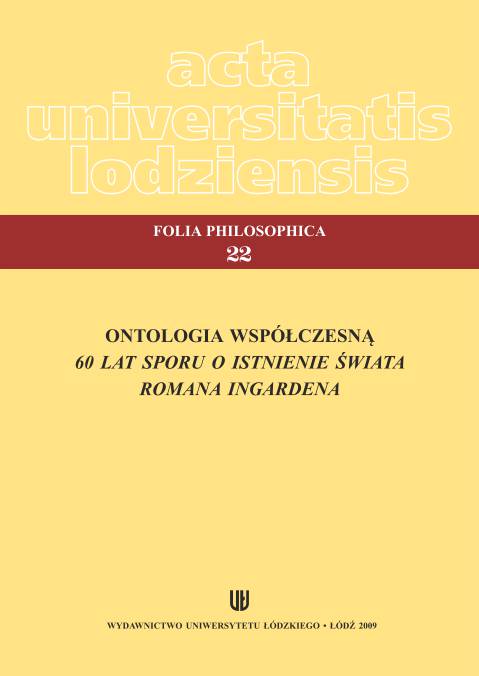Donald Davidson’s Metaphysics of Events
DOI:
https://doi.org/10.18778/0208-6107.22.08Abstract
Donald Davidson (1917–2002) is mainly known as a philosopher of language who based his theory of meaning on Tarski's definition of truth. His theory without meanings as entities is the core of a subtle and sophisticated philosophical system that resembles very complicated puzzles. If isolated every part of his system seems arbitrary and not justified. It concerns particularly his metaphysics of events which justification can be found in Davidson's views on language, cognition and psychology. Davidson himself usually applies the term "ontology" but in fact makes some metaphysical presuppositions. These presuppositions do not constitute metaphysical system but rather are used to explain the phenomenon of linguistic communication. The main categories of Davidsonian metaphysic: event, object and causal relation, are irreducible and can be described in various ways. In the paper I reconstruct Davidson's way from his philosophy of language to his metaphysic. I also indicate some consequences of his metaphysical views for his philosophy of science and psychology.Downloads
Published
2009-01-01
How to Cite
Maciaszek, J. (2009). Donald Davidson’s Metaphysics of Events. Acta Universitatis Lodziensis. Folia Philosophica. Ethica-Aesthetica-Practica, (22), 87–104. https://doi.org/10.18778/0208-6107.22.08
Issue
Section
Articles
License

This work is licensed under a Creative Commons Attribution-NonCommercial-NoDerivatives 3.0 Unported License.












